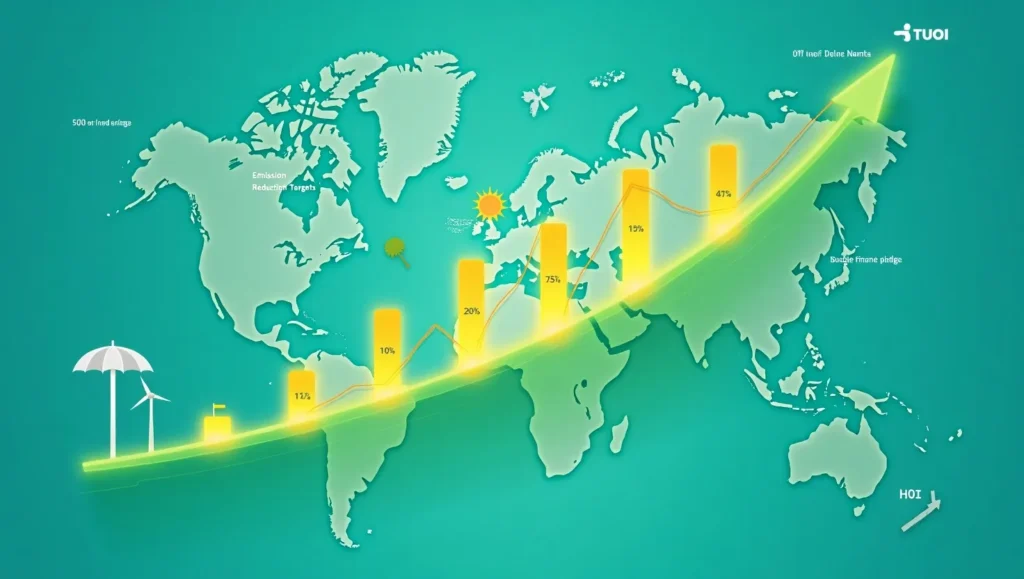Geneva Climate Summit 2025: New Global Commitments & What They Mean for USA, UK, Canada
Introduction: As the world grapples with escalating climate challenges, the Geneva Climate Summit 2025, currently underway, has emerged as a pivotal moment for global environmental policy. Leaders from key nations, including the USA, UK, and Canada, are convened to forge new international commitments, aiming to drastically reduce carbon emissions and bolster climate adaptation efforts worldwide. This article provides a concise overview of the summit’s objectives, the significant announcements made thus far, and what these new global commitments could mean for our target countries and the planet’s sustainable future.
The Stakes in Geneva: Why This Summit Matters
This section will explain the context and critical importance of the summit.
Addressing a Global Imperative
- Current Climate Reality: Briefly mention recent extreme weather events or rising global temperatures that underscore the urgency.
- Summit’s Goal: To set ambitious new targets and mobilize resources beyond previous agreements.
Key Participants and Their Roles
- Major Nations: Highlight the involvement of the USA, UK, Canada, EU, and other significant global players.
- Focus Areas: Discussions are centered on emission reductions, climate finance, and adaptation strategies.
New Commitments Unveiled: What’s Been Announced So Far
This section will cover the major outcomes and agreements from the summit.
Ambitious Emission Reduction Targets
- New Pledges: Report on any new, more aggressive carbon emission reduction targets announced by major countries or blocs.
- Sectoral Focus: Mention specific sectors targeted (e.g., energy, transportation, industry).
Funding for Climate Adaptation and Green Technology
- Financial Pledges: Discuss new commitments for climate finance to help developing nations adapt to climate change impacts.
- Innovation Push: Highlight initiatives aimed at accelerating the development and deployment of green technologies (e.g., renewable energy, carbon capture).
International Collaboration Initiatives
- New Partnerships: Detail any new international partnerships formed to address specific climate challenges.
- Monitoring and Verification: Discuss plans for stronger mechanisms to track progress on commitments.

Impact on USA, UK, and Canada: What’s Next?
This section will analyze the implications of the summit’s outcomes for your target countries.
Policy Shifts and Domestic Initiatives
- USA: How new federal policies or state-level initiatives might be influenced by global commitments (e.g., investment in renewables, new regulations).
- UK: Implications for its net-zero targets and green economy transition (e.g., industrial strategies, carbon pricing).
- Canada: How commitments might align with its carbon pricing framework and clean energy transition plans.
Economic Opportunities and Challenges
- Green Job Creation: Discuss the potential for new jobs in renewable energy, sustainable manufacturing, and climate tech.
- Industry Adaptation: Challenges and opportunities for traditional industries to decarbonize.
- Consumer Impact: How policies might affect energy costs, transportation, and daily life.
Geopolitical Standing
- Leadership Role: How active participation reinforces their international standing on climate action.
- International Relations: The role of climate diplomacy in broader foreign policy.

Conclusion: The Geneva Climate Summit 2025 marks a crucial juncture in the global fight against climate change. The new commitments forged by nations, including the USA, UK, and Canada, signal a heightened resolve to transition towards a sustainable future. While significant challenges remain, these agreements pave the way for accelerated green innovation, robust environmental policies, and a collective effort to safeguard our planet. The coming months will be critical as these nations translate global pledges into domestic action, shaping their economies and societies for decades to come.

